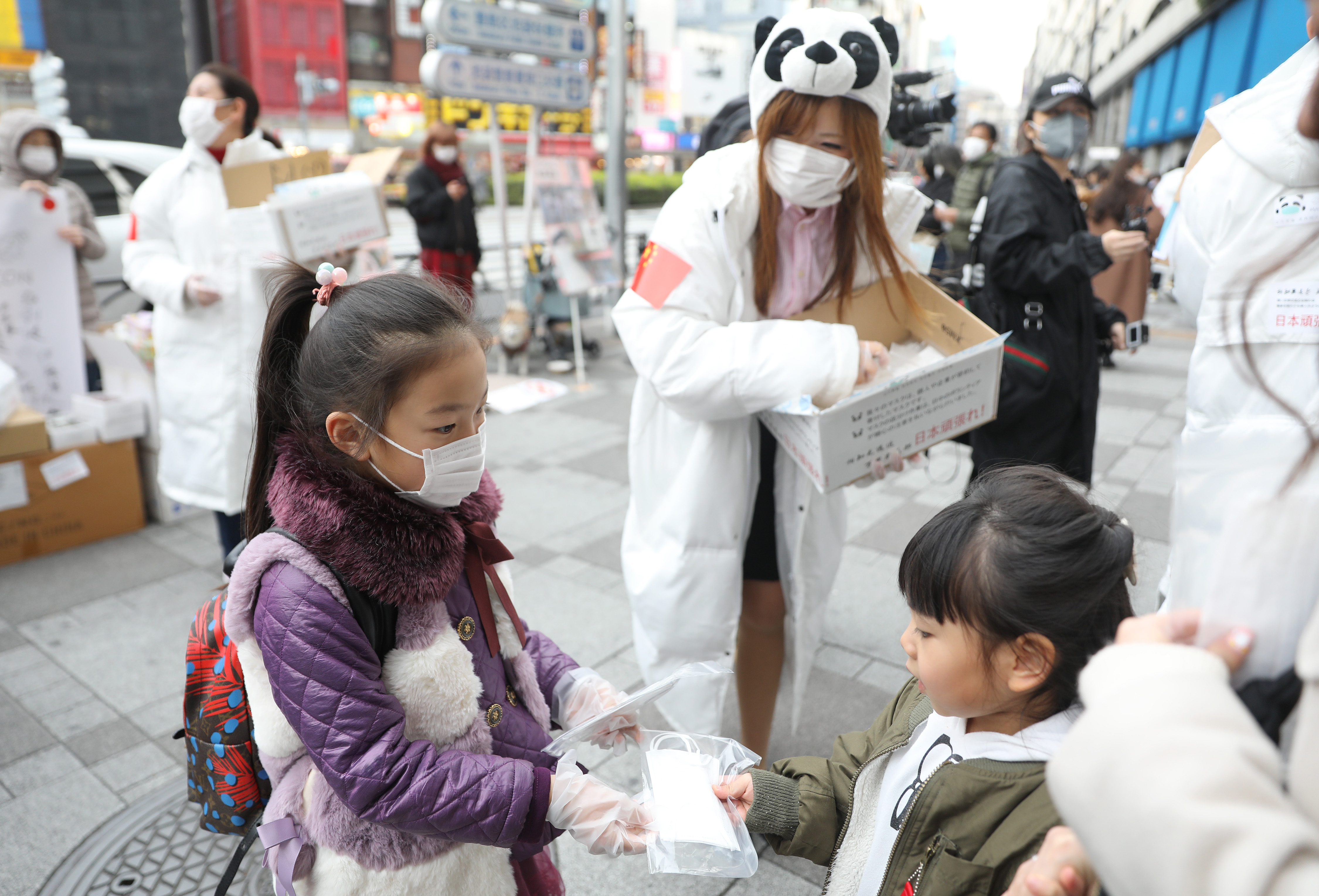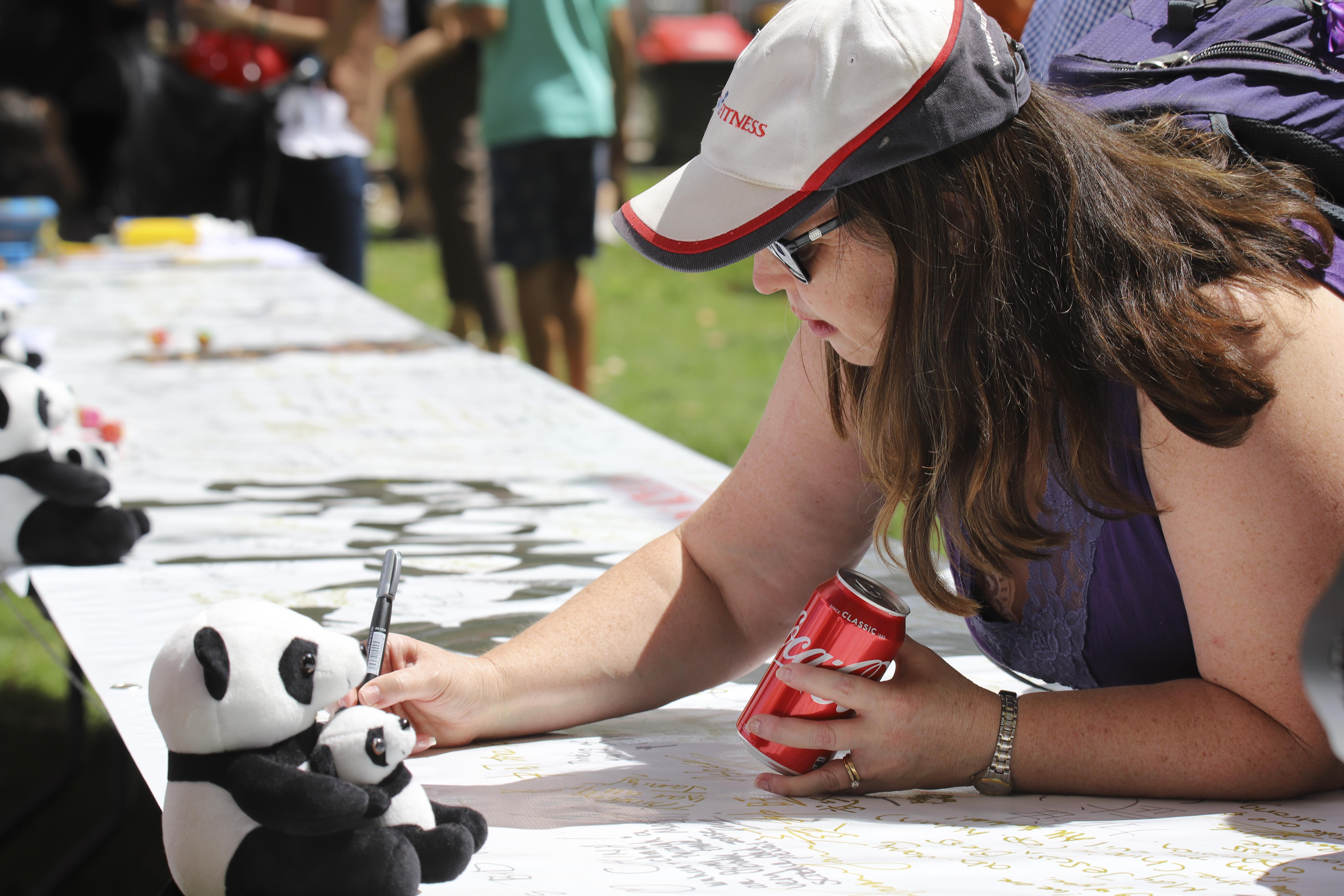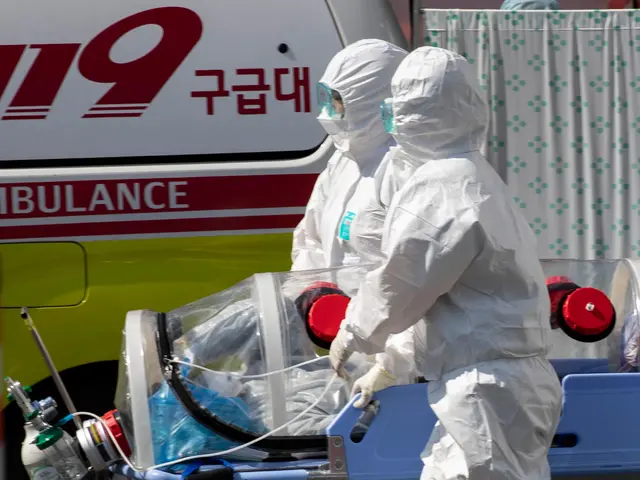Asia-pacific countries are on high alert and taking emergency actions to contain the spread of COVID-19 as confirmed cases continue to grow rapidly in the region.
South Korea is battling a rising number of COVID-19 cases with the caseload rising to 6,088 on Thursday, up 322 from the previous announcement as of midnight. Five more deaths were reported, lifting the total death toll to 41.
The fatality rate from the virus in the country stood at 0.6 percent as of midnight Wednesday. The rate was 4.5 percent for those in their 70s and 5.6 percent in their 80s or higher.
Forty-seven more patients were discharged from quarantine after making full recovery, raising the combined number to 88.
The virus infection soared for the past 15 days, with 5,735 new cases reported from Feb. 19 to March 4. The country has raised its four-tier virus alert to the highest "red" level.
Daegu became the epicenter of the viral spread in the country and has been designated by the government as a "special care zone." The total number of infections in Daegu and its surrounding North Gyeongsang province increased to 4,327 and 861 respectively as of midnight. It accounted for about 90 percent of the country's total.
South Korean health authorities forecast that the growth rate of newly confirmed cases would slow down as the test on most of the Sincheonji followers with symptoms was completed.
President Moon Jae-in has vowed to overcome the outbreak through national unity at home and in cooperation with neighboring countries.
Worried about the rapid virus spread, the South Korean education ministry has ordered all preschools, primary and secondary schools nationwide to postpone their March openings by two more weeks to March 23.
The number of confirmed cases in Japan as of Wednesday rose to 1,001, including more than 700 people who were infected while aboard the Diamond Princess cruise ship that was quarantined in Yokohama near Tokyo.

Members of a volunteer group named "Mask Panda Action Team" hand out masks to local people in Tokyo, Japan, Feb. 29, 2020. (Xinhua/Du Xiaoyi)
The Japanese government is planning to implement a special law to enable it to make better provisions to combat the COVID-19 outbreak and declare a state of emergency if necessary, the ruling party sources said on Wednesday.
The special law, which will be effective for a period of up to two years, could see the government revise the existing law on novel influenza and make it applicable to the COVID-19 and valid until February 2022 as COVID-19 was officially classified as a designated infectious disease in Japan in February.
Japanese Prime Minister Shinzo Abe said on Tuesday he would like to make "full use" of a fiscal 2019 reserve fund of 270 billion yen (2.5 billion U.S. dollars) as a second emergency package to combat the epidemic.
The Japanese government has also asked all elementary, junior-high and high schools to temporarily close for around a month.
Hokkaido, one of Japan's worst-hit areas, declared a state of emergency last Friday.
The total number of confirmed cases was 112 as of Wednesday in Singapore, of which 79 have fully recovered, according to the Ministry of Health.
Singapore decided on Tuesday to bar travellers who have been to South Korea, northern Italy and Iran within the last 14 days from entering or transiting through Singapore, as part of its effort to guard against the COVID-19.
Singaporean Prime Minister Lee Hsien Loong said last week that the country is currently in a "relatively stable" situation amid the ongoing COVID-19 outbreak.
A total of six new cases were confirmed in Australia's New South Wales State on Thursday, taking the total confirmed cases to 52 in the country, with two deaths.

A woman signs her name to express support to the central Chinese city of Wuhan, the epicenter of the novel coronavirus disease (COVID-19) outbreak, at the 2020 National Multicultural Festival in Canberra, Australia, Feb. 22, 2020. (Photo by Liu Changchang/Xinhua)
Australia's first person-to-person transmission of COVID-19 was confirmed Monday, with two people now reported contracting the disease on Australian soil.
Prime Minister Scott Morrison announced Thursday to expand travel ban to include South Korea.
Thailand has reported 47 confirmed cases of COVID-19 as of Thursday with one death, according to the Department of Disease Control.
Thailand is manufacturing as many as 50 million cloth masks which will be provided for people nationwide from next week to wear against the COVID-19 outbreak, Interior Minister Anupong Paojinda said on Wednesday.
As of Wednesday, a total of 28 COVID-19 infection cases have been confirmed in India, with 25 new cases reported over the past two days. The first three cases found in southern state of Kerala had been successfully cured last month.
Among the 25 new cases, 17 are Italian nationals who came to India as tourists and now kept in an isolation ward in Delhi. The rest eight are Indians.
The Indian government has sprung into action with the situation being directly supervised by the Prime Minister's Office. Key decisions taken at an inter-ministerial meeting on Wednesday included expansion of testing facilities and developing a Geographic Information System (GIS) data-base for mapping disease hot-spots and available medical facilities.
Two important changes had also been brought in since Tuesday, which included further enhancing the country's level of preparedness by introducing universal screening at all international airports and sea-ports through use of thermal imagery equipment, and mandatory filling of declaration forms of places visited by tourists and travelers returning from abroad.
New Zealand confirmed the third case of COVID-19 on Thursday. The New Zealand government confirmed on Monday that travel restrictions currently in place for China and Iran will continue for a further week, while people entering the country from South Korea and northern Italy will be told to go into self-isolation.
 简体中文
简体中文





